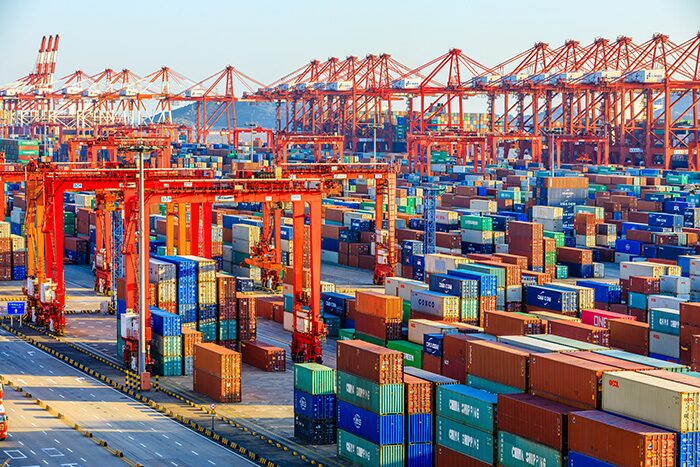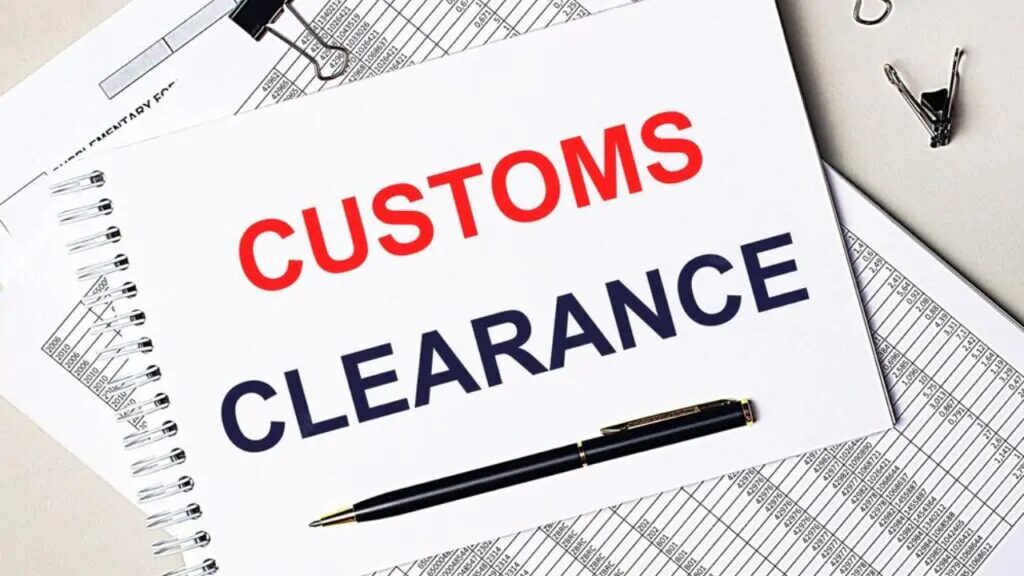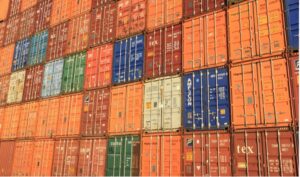China is the world’s largest exporter of goods, with a total value of $2.59 trillion in 2020. Bulgaria is a country in Southeast Europe that has a strategic location for trade and transportation, with access to the Black Sea and the Danube River. Bulgaria imported $23.4 billion worth of goods in 2020, of which $3.1 billion came from China.
Shipping containers are the most common and efficient way of transporting goods across the world. They are standardized metal boxes that can be loaded and unloaded easily, and can carry various types of cargo, such as machinery, electronics, clothing, furniture, and more. Shipping containers come in different sizes and types, such as 20-foot, 40-foot, high-cube, open-top, flat-rack, refrigerated, and more.
If you are an importer who wants to ship goods from China to Bulgaria, you need to understand the logistics of shipping containers, choose the right shipping container company, prepare the necessary documentation and customs clearance, ensure the safe and secure transportation of your goods, track and monitor your shipment, deal with any challenges and potential delays, and consider the cost and budgeting factors. This article will guide you through these steps and provide you with some useful tips and resources.
Understanding the Logistics of Shipping Containers from China to Bulgaria

The first step in shipping containers from China to Bulgaria is to understand the logistics involved. There are two main modes of transportation for shipping containers: sea freight and rail freight.
Sea Freight
Sea freight is the most common and economical way of shipping containers from China to Bulgaria. Sea freight involves transporting your goods by ship from a port in China to a port in Bulgaria. The main ports in China that handle container shipments are Shanghai, Shenzhen, Ningbo, Qingdao, Tianjin, Guangzhou, and Xiamen. The main ports in Bulgaria that receive container shipments are Varna, Burgas, and Lom.
The transit time for sea freight from China to Bulgaria depends on the route, the carrier, and the weather conditions. The average transit time is about 30 to 40 days. The cost of sea freight from China to Bulgaria depends on the size and type of the container, the weight and volume of the cargo, the season, the fuel surcharge, and the port fees. The average cost of sea freight from China to Bulgaria is about $1,500 to $3,000 per 20-foot container, and $2,500 to $5,000 per 40-foot container.
Rail Freight
Rail freight is an alternative way of shipping containers from China to Bulgaria. Rail freight involves transporting your goods by train from a rail terminal in China to a rail terminal in Bulgaria. The main rail terminals in China that handle container shipments are Zhengzhou, Chongqing, Chengdu, Wuhan, and Yiwu. The main rail terminals in Bulgaria that receive container shipments are Sofia, Plovdiv, and Ruse.
The transit time for rail freight from China to Bulgaria is much faster than sea freight, as it takes about 15 to 20 days. The cost of rail freight from China to Bulgaria is higher than sea freight, as it ranges from $3,000 to $6,000 per 20-foot container, and $5,000 to $10,000 per 40-foot container.
Choosing the Right Shipping Container Company

The second step in shipping containers from China to Bulgaria is to choose the right shipping container company. A shipping container company is a service provider that offers you the transportation, handling, and delivery of your goods from China to Bulgaria. There are two main types of shipping container companies: freight forwarders and carriers.
Freight Forwarders
Freight forwarders are intermediaries that act as your agents and arrange the shipping process for you. They have connections with various carriers, customs brokers, and other service providers, and can offer you competitive rates, flexible options, and professional advice. Freight forwarders can handle the entire shipping process for you, from booking the space, preparing the documents, clearing the customs, tracking the shipment, to delivering the goods to your destination.
Some of the advantages of using freight forwarders are:
- They can save you time and hassle, as they take care of the details and paperwork for you.
- They can save you money, as they can negotiate better rates and terms with the carriers and other service providers.
- They can provide you with more options, as they can access different routes, modes, and carriers, and tailor the shipping solution to your needs and preferences.
- They can provide you with more security, as they have insurance and liability coverage, and can handle any claims or disputes on your behalf.
Some of the disadvantages of using freight forwarders are:
- They can add extra fees and charges, as they may include their commission, service fee, or hidden costs in the final invoice.
- They can have less control and transparency, as they may not have direct contact with the carriers or other service providers, and may not be able to provide you with accurate or timely information.
- They can have lower quality and reliability, as they may not have the same standards or reputation as the carriers or other service providers, and may not be able to guarantee the delivery or condition of your goods.
Some of the factors to consider when choosing a freight forwarder are:
shipping container from china to bulgaria
- Their experience and expertise in shipping containers from China to Bulgaria, and their knowledge of the local market, regulations, and customs.
- Their network and partnerships with reputable and reliable carriers, customs brokers, and other service providers, and their access to different routes, modes, and capacities.
- Their reputation and credibility in the industry, and their feedback and reviews from previous or existing customers.
- Their service and communication level, and their responsiveness and availability to answer your questions and address your concerns.
- Their price and value, and their transparency and clarity in their quotation and invoice.
Some of the examples of freight forwarders that offer shipping container services from China to Bulgaria are:
- Flexport: A digital freight forwarder that uses technology and data to provide you with a seamless and transparent shipping experience.
- Freightos: An online freight marketplace that connects you with multiple freight forwarders and carriers, and allows you to compare and book the best shipping option for you.
- BanSar: A professional freight forwarder that specializes in shipping containers from China to Europe, and offers you competitive rates, fast delivery, and customized solutions.
Carriers
Carriers are the actual transportation companies that move your goods from China to Bulgaria. They own and operate the ships, trains, trucks, or planes that carry your cargo. Carriers can offer you direct and reliable shipping services, without involving any intermediaries or agents. Carriers can handle the transportation and delivery of your goods, but they may not provide you with other services, such as booking, documentation, customs clearance, or insurance.
Some of the advantages of using carriers are:
- They can provide you with more control and transparency, as they have direct contact and responsibility for your shipment, and can provide you with accurate and timely information.
- They can provide you with higher quality and reliability, as they have the same standards and reputation as the shipping industry, and can guarantee the delivery and condition of your goods.
- They can provide you with lower fees and charges, as they do not include any commission, service fee, or hidden costs in the final invoice.
Some of the disadvantages of using carriers are:
- They can have limited options and flexibility, as they may not have access to different routes, modes, or capacities, and may not be able to tailor the shipping solution to your needs and preferences.
- They can have higher rates and terms, as they may not offer you competitive or negotiable prices, and may impose strict or unfavorable conditions or policies.
- They can have less service and communication level, as they may not be responsive or available to answer your questions or address your concerns, and may not provide you with professional or personalized advice.
Some of the factors to consider when choosing a carrier are:
shipping container from china to bulgaria
- Their experience and expertise in shipping containers from China to Bulgaria, and their knowledge of the local market, regulations, and customs.
- Their network and coverage with different ports, terminals, and destinations, and their availability and frequency of their services.
- Their reputation and credibility in the industry, and their feedback and reviews from previous or existing customers.
- Their service and communication level, and their responsiveness and availability to answer your questions and address your concerns.
- Their price and value, and their transparency and clarity in their quotation and invoice.
Some of the examples of carriers that offer shipping container services from China to Bulgaria are:
- Maersk: The world’s largest container shipping company, with a global network of over 300 ports, and a comprehensive range of sea and rail freight services.
- COSCO: The largest container shipping company in China, with a fleet of over 1,300 vessels, and a strong presence in Asia and Europe.
- MSC: The second-largest container shipping company in the world, with a fleet of over 600 vessels, and a wide coverage of ports and destinations.
Documentation and Customs Clearance for Shipping Containers

The third step in shipping containers from China to Bulgaria is to prepare the necessary documentation and customs clearance for your shipment. Documentation and customs clearance are essential parts of the shipping process, as they provide the information and proof of your goods, and allow them to pass through the customs authorities of both countries. You need to ensure that your documents are complete, accurate, and consistent, and that you comply with the rules and regulations of both countries, to avoid any delays, penalties, or confiscations.
Some of the documents that you need to prepare for shipping containers from China to Bulgaria are:
shipping container from china to bulgaria
- Commercial Invoice: A document that shows the details of your transaction, such as the seller, the buyer, the description, the quantity, the value, and the terms of sale of your goods. The commercial invoice is used to determine the customs value and duty of your goods, and to verify the origin and destination of your shipment.
- Packing List: A document that shows the details of your packing, such as the number, the weight, the volume, and the marks and numbers of your packages. The packing list is used to check the contents and condition of your goods, and to calculate the freight and insurance charges of your shipment.
- Bill of Lading: A document that shows the details of your transportation, such as the carrier, the consignor, the consignee, the port of loading, the port of discharge, and the date of shipment of your goods. The bill of lading is used to confirm the receipt and delivery of your goods, and to transfer the ownership and liability of your shipment.
- Certificate of Origin: A document that shows the origin of your goods, such as the country, the region, or the factory where they were produced or manufactured. The certificate of origin is used to determine the eligibility and preferential treatment of your goods under the trade agreements or policies of both countries.
- Import Declaration: A document that shows the declaration of your goods to the customs authorities of the destination country, such as the type, the quantity, the value, and the duty of your goods. The import declaration is used to clear your goods from the customs, and to pay the taxes and fees of your shipment.
You can prepare these documents by yourself, or you can hire a freight forwarder or a customs broker to assist you. You can also use online platforms or software to generate and manage your documents electronically. Some of the examples of online platforms or software that offer document services for shipping containers are:
- IncoDocs: An online platform that allows you to create, send, and track your shipping documents in one place, and to connect with your suppliers, customers, and service providers.
- Shippo: An online platform that allows you to compare, book, and print your shipping labels and documents from multiple carriers, and to track your shipments in real time.
- Easyship: An online platform that allows you to calculate your shipping costs and taxes, generate your customs documents, and access discounted rates from over 250 carriers.
Ensuring Safe and Secure Transportation of Shipping Containers

The fourth step in shipping containers from China to Bulgaria is to ensure the safe and secure transportation of your goods. Shipping containers are designed to protect your goods from damage, theft, or loss during the journey, but they are not immune to risks or hazards. You need to take some precautions and measures to prevent or minimize any potential problems or issues that may affect your shipment.
Some of the precautions and measures that you need to take to ensure the safe and secure transportation of your goods are:
shipping container from china to bulgaria
- Packing and Loading: You need to pack and load your goods properly and securely, to avoid any movement, shifting, or spillage of your cargo inside the container. You need to use appropriate packing materials, such as boxes, pallets, crates, bags, or wraps, and to label and seal your packages clearly and correctly. You need to distribute the weight and volume of your cargo evenly and efficiently, and to fill any empty spaces or gaps with cushioning materials, such as foam, paper, or airbags. You need to follow the instructions and guidelines of the carrier or the freight forwarder, and to comply with the standards and regulations of both countries, regarding the packing and loading of your goods.
- Inspection and Verification: You need to inspect and verify your goods and your documents before and after the shipment, to ensure that they are in good condition and order, and that they match the information and requirements of your transaction. You need to check the quality and quantity of your goods, and to report any defects, damages, or discrepancies to the carrier or the freight forwarder. You need to check the accuracy and consistency of your documents, and to confirm the details and terms of your transportation and delivery with the carrier or the freight forwarder.
- Insurance and Liability: You need to insure your goods and your shipment, to cover any risks or losses that may occur during the transportation and delivery of your goods. You need to choose the right type and level of insurance, depending on the value and nature of your goods, and the mode and route of your transportation. You need to understand the liability and responsibility of the carrier or the freight forwarder, and the limits and exclusions of their coverage, and to claim or dispute any damages or losses that may arise from their negligence or fault. You need to follow the procedures and policies of the carrier or the freight forwarder, and the laws and regulations of both countries, regarding the insurance and liability of your shipment.
Tracking and Monitoring Shipping Containers during the Journey

The fifth step in shipping containers from China to Bulgaria is to track and monitor your shipment during the journey. Tracking and monitoring your shipment is important, as it allows you to know the status and location of your goods, and to anticipate and prepare for the arrival and delivery of your shipment. You need to use the tools and methods that are available and suitable for your shipment, and to communicate and coordinate with the carrier or the freight forwarder, and the customs authorities of both countries, to ensure the smooth and timely transportation and delivery of your goods.
Some of the tools and methods that you can use to track and monitor your shipment are:
shipping container from china to bulgaria
- Tracking Number: A unique code that is assigned to your shipment by the carrier or the freight forwarder, and that is used to identify and locate your shipment in their system. You can use the tracking number to access the information and updates of your shipment, such as the date, the time, the place, and the status of your shipment, on the website or the app of the carrier or the freight forwarder, or on a third-party platform or software that aggregates the data from multiple sources.
- GPS Device: A device that is attached to your container or your cargo, and that uses the global positioning system (GPS) to transmit the coordinates and the movement of your shipment to a receiver or a server. You can use the GPS device to access the real-time and accurate information and updates of your shipment, such as the speed, the direction, the temperature, and the condition of your shipment, on the website or the app of the device provider, or on your own device or software that connects to the device.
- RFID Tag: A tag that is attached to your container or your cargo, and that uses the radio frequency identification (RFID) to store and exchange the data and the details of your shipment with a reader or a scanner. You can use the RFID tag to access the specific and comprehensive information and updates of your shipment, such as the origin, the destination, the content, and the history of your shipment, on the website or the app of the tag provider, or on your own device or software that connects to the tag.
Dealing with Challenges and Potential Delays in Shipping Containers

The sixth step in shipping containers from China to Bulgaria is to deal with any challenges and potential delays that may affect your shipment. Shipping containers are subject to various factors and conditions that may cause problems or issues during the transportation and delivery of your goods, such as weather, traffic, accidents, strikes, protests, breakdowns, shortages, or emergencies. You need to be aware and prepared for any possible scenarios and situations that may occur, and to take the appropriate actions and measures to resolve or mitigate them.
Some of the challenges and potential delays that you may encounter in shipping containers from China to Bulgaria are:
- Weather: Weather is a natural and unpredictable factor that may affect the transportation and delivery of your goods, especially if you use sea or rail freight. Weather may cause storms, floods, snow, fog, or ice, that may damage, delay, or divert your shipment, or prevent it from reaching its destination. You need to check the weather forecast and conditions of both countries, and the route and mode of your transportation, and to adjust your schedule and plan accordingly. You need to protect your goods and your container from the weather, by using waterproof or insulated materials, or by choosing a suitable type of container, such as refrigerated or heated. You need to communicate and coordinate with the carrier or the freight forwarder, and the customs authorities of both countries, to monitor the situation and to find the best solution for your shipment.
- Traffic: Traffic is a human and variable factor that may affect the transportation and delivery of your goods, especially if you use road or rail freight. Traffic may cause congestion, accidents, or blockages, that may slow down, stop, or reroute your shipment, or prevent it from reaching its destination. You need to check the traffic situation and regulations of both countries, and the route and mode of your transportation, and to avoid the peak hours and the busy areas. You need to secure your goods and your container from the traffic, by using locks, seals, or alarms, or by choosing a reliable and reputable carrier or freight forwarder. You need to communicate and coordinate with the carrier or the freight forwarder, and the customs authorities of both countries, to monitor the situation and to find the best solution for your shipment.
- Customs: Customs is a legal and mandatory factor that may affect the transportation and delivery of your goods, as you need to clear your goods from the customs authorities of both countries, and to pay the taxes and fees of your shipment. Customs may cause inspections, audits, or seizures, that may delay, fine, or confiscate your shipment, or prevent it from reaching its destination. You need to check the customs rules and regulations of both countries, and the type and value of your goods, and to comply with the requirements and procedures of the customs clearance. You need to prepare and submit your documents and your declaration to the customs authorities of both countries, and to pay the duties and taxes of your shipment. You need to communicate and coordinate with the carrier or the freight forwarder, and the customs broker or agent, to facilitate the process and to resolve any issues or disputes that may arise.
- Cost Considerations and Budgeting for Shipping Containers
- The seventh and final step in shipping containers from China to Bulgaria is to consider the cost and budgeting factors of your shipment. Shipping containers involve various costs and expenses that may affect your profitability and cash flow, such as the freight rate, the insurance premium, the customs duty, the port fee, the storage fee, the handling fee, and more. You need to estimate and calculate the total cost of your shipment, and to compare and negotiate the best price and value for your shipment. You need to plan and manage your budget and your cash flow, and to optimize your cost and your efficiency.
- Some of the cost considerations and budgeting factors that you need to take into account for shipping containers from China to Bulgaria are:
- Freight Rate: The freight rate is the price that the carrier or the freight forwarder charges you for transporting your goods from China to Bulgaria. The freight rate depends on the size and type of the container, the weight and volume of the cargo, the mode and route of the transportation, the season, the fuel surcharge, and the market demand and supply. You need to compare and negotiate the freight rate with the carrier or the freight forwarder, and to choose the best option that suits your needs and preferences. You need to consider the trade-off between the cost and the speed, the reliability, and the flexibility of the transportation.
- Insurance Premium: The insurance premium is the fee that the insurance company charges you for covering your goods and your shipment from any risks or losses that may occur during the transportation and delivery of your goods. The insurance premium depends on the value and nature of your goods, the mode and route of the transportation, the type and level of the insurance, and the deductible and the coverage. You need to choose the right type and level of insurance, depending on the value and nature of your goods, and the mode and route of your transportation. You need to consider the trade-off between the cost and the security, the liability, and the compensation of the insurance.
- Customs Duty: The customs duty is the tax that the customs authorities of both countries charge you for importing your goods from China to Bulgaria. The customs duty depends on the type, the quantity, the value, and the origin of your goods, and the trade agreements or policies of both countries. You need to check the customs rules and regulations of both countries, and the type and value of your goods, and to comply with the requirements and procedures of the customs clearance. You need to prepare and submit your documents and your declaration to the customs authorities of both countries, and to pay the duties and taxes of your shipment. You need to consider the trade-off between the cost and the eligibility, the preferential treatment, and the compliance of the customs duty.
- Other Fees: Other fees are the additional charges that the carrier, the freight forwarder, the port authority, the customs authority, or other service providers may impose on you for handling, storing, or delivering your goods from China to Bulgaria. Other fees may include the port fee, the storage fee, the handling fee, the documentation fee, the customs fee, the delivery fee, and more. Other fees depend on the service and the provider, and the terms and conditions of your shipment. You need to check and verify the other fees with the carrier, the freight forwarder, the port authority, the customs authority, or other service providers, and to avoid or reduce any unnecessary or hidden costs. You need to consider the trade-off between the cost and the quality, the convenience, and the satisfaction of the service.
shipping container from china to bulgaria





